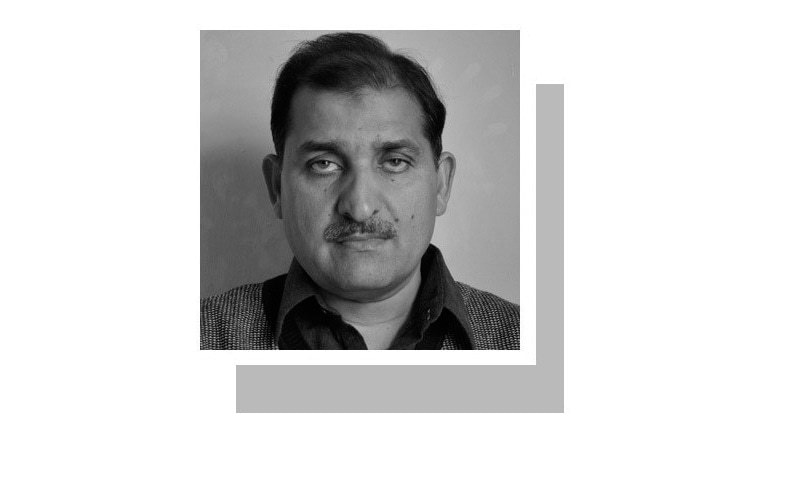
TO the delight of beleaguered Afghan President Ashraf Ghani, the UN Security Council has lifted sanctions against former warlord Gulbuddin Hekmatyar. Now that his assets are unfrozen and he has been allowed to step out of the shadows, the Hezb-i-Islami Afghanistan (HIA) chief is poised to resume political activities.
The former prime minister’s removal from the blacklist represents an important step towards the enforcement of the September 2016 Kabul-HIA peace pact on the one hand, and vindicates Ghani’s stance that a negotiated settlement of the 16-year conflict is still attainable on the other. With significant influence in cultural and political circles, Hekmatyar is the first militant commander to reach an agreement with Kabul.
Hekmatyar’s re-entry into politics will boost the culture of impunity.
The second largest insurgent outfit in Afghanistan after the Afghan Taliban, HIA has embraced the constitution and dismantled its armed wing. In return, the government has promised to release hundreds of HIA prisoners, make the group part of the electoral reform process, repatriate refugees from Pakistan and adhere to Islamic principles. At this point in time, it’s difficult to predict the ramifications of this move for leading political figures, including Ghani and chief executive Dr Abdullah. The man who has fought against US forces over the past one and a half decades can pose a formidable challenge to the government if the accord is not implemented in toto.
For the ruling coalition, still divided on a whole host of issues including electoral reforms and giving legal cover to Abdullah’s position, delivering on these pledges will be an onerous task. With question marks hanging on its legitimacy, the unity government is unlikely to evolve a consensus soon on giving HIA the role it was promised.
Both Ghani and Abdullah — squabbling over the distribution of key government posts and the convening of a loya jirga on constitutional amendments — are acutely aware that Hekmatyar can be a potential threat to them. In an effort to make his comeback felt across the country, the HIA head will obviously push for swift execution on the commitments made to his party. One sticking point is the immunity Hekmatyar and his supporters have been promised for their past actions. Civil society, human rights watchdogs and erstwhile Northern Alliance apologists, particularly the Panjsheri clique, would do all they can to upset the applecart: a political role for HIA. How Ghani will answer growing calls for accountability of his new ally remains to be seen.
Hekmatyar’s re-entry into politics after years in hiding will boost the culture of impunity Kabul and its international partners have fostered by letting some warlords off the hook. It will also incense the victims of his fighters who were unleashed after the Soviet withdrawal in the late 1980s.
As envisaged in the pact, HIA will have a guaranteed role in the government, and its members — fighters and commanders — will be integrated into the security forces. Already having a good presence in the political system, the faction is likely to insist on a party-based election system. This is anathema to a number of powerful individuals within the government. The long-running rivalry between the Hezb and Jamiat-i-Islami, dating back to the mid-1970s, could be another major impediment to the deal’s total enforcement. Statements from people like ex-spymasters Amrullah Saleh and Rahmatullah Nabil betoken aversion to peace with Hekmatyar’s party.
Kabul hopes the agreement will serve as a template for peace parleys with the Taliban, but the government’s assessment appears to be naïve at best. In control of large swathes of rural territory, the Taliban have already spurned peace overtures from the government, defying pressures from different countries, including Pakistan, China and Saudi Arabia.
Russia opposed lifting sanctions against the HIA supremo, whose followers rained down rocket barrages on the nation’s capital during the civil strife and earned him the nickname of the ‘Butcher of Kabul’. But other members of the Security Council responded positively to Kabul’s request for help in the implementation of the peace treaty.
From the government’s perspective, encouraging vibes from world powers can be construed as a manifestation of strong international support for Afghan-owned negotiations and glad tidings. However, given the Taliban’s insistence on fighting it out on the battlefield, the road to reconciliation appears to be strewn with hurdles.
Will the US, which has placed a huge bounty on the insurgent commander’s head, also lift the curbs on him? Donald Trump has inherited a not-so-viable legacy from his predecessor in Afghanistan — a quagmire for American troops. Expected to resist the temptation of taking ownership of the war, Trump should support Kabul’s quest for home-grown solutions to its myriad problems.
The writer is a freelance journalist based in Peshawar.
Published in Dawn February 7th, 2017











































